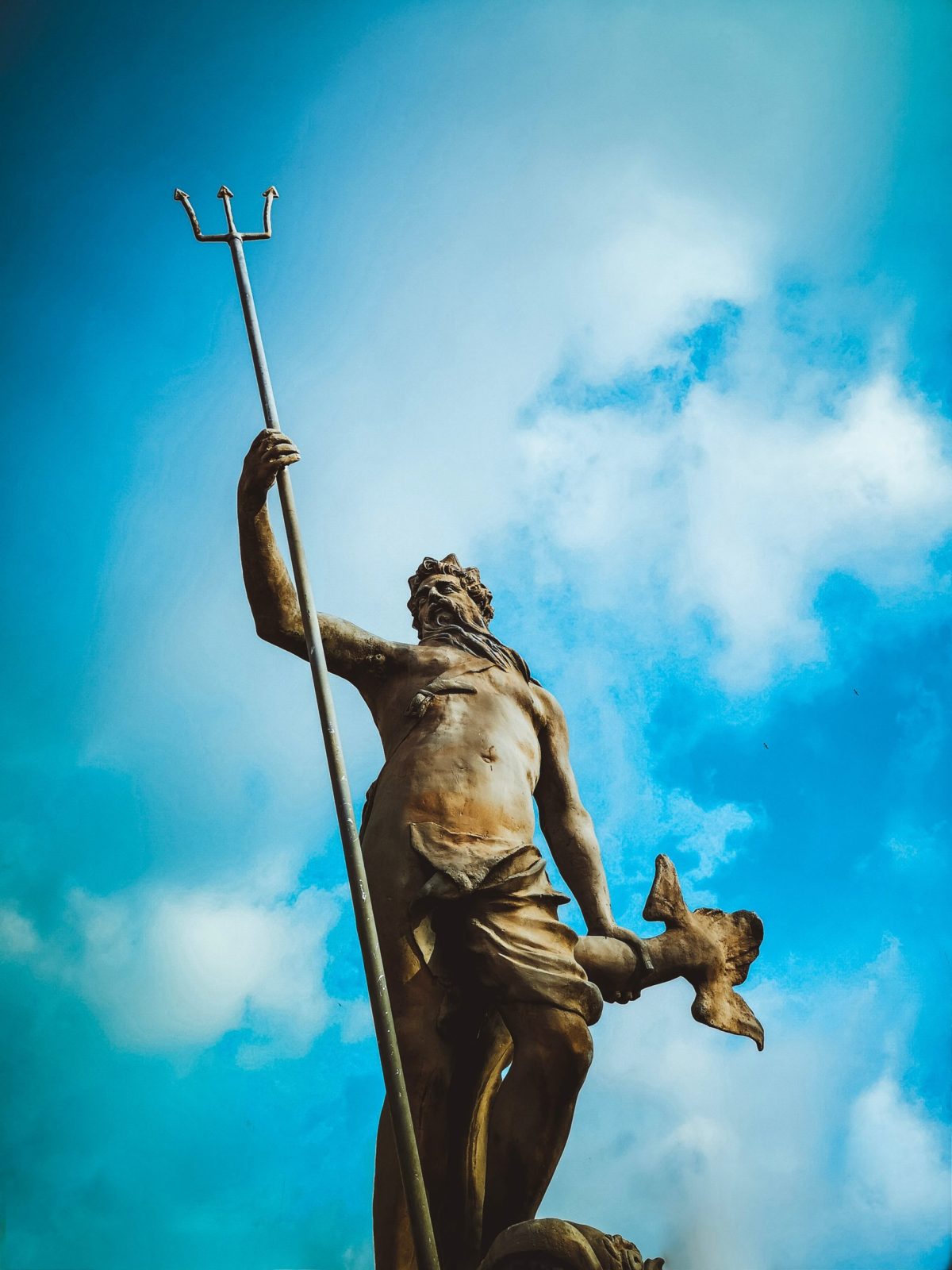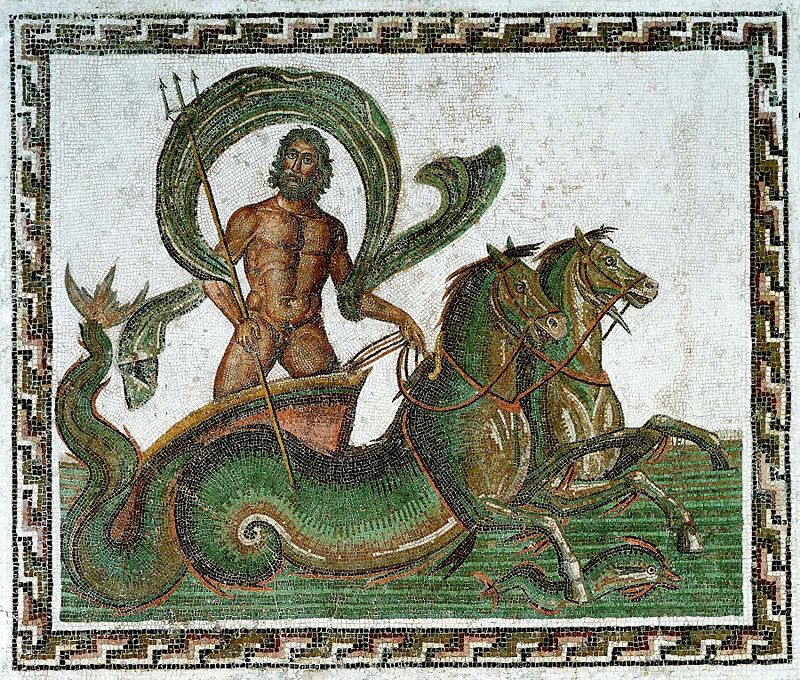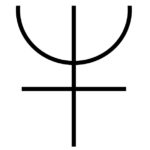“I begin to sing about Poseidon, the great god, mover of the earth and fruitless sea, god of the deep who is also lord of Helicon and wide Aegae.
A two-fold office the gods allotted you, O Shaker of the Earth, to be a tamer of horses and a saviour of ships! Hail, Poseidon, Holder of the Earth, dark-haired lord! O blessed one, be kindly in heart and help those who voyage in ships!”
-Homeric Hymn XXII
Attributes of Neptune
Neptune, called Poseidon in the Greek tradition, is the Greco-Roman god of the oceans and of earthquakes.
Neptune’s consort was Salacia, goddess of salt water and the ocean depths. Neptune could create new islands and provide calm seas beneficial for sailing, or he could strike with his trident and cause storms, shipwrecks, drownings, and earthquakes. Sailors often prayed to him for safe passage on their sea journeys.

Neptune ruled over the ancient civilization of Atlantis and his temple was central to the spiritual life of the Atlantians.
“Let us now remember that submerged primeval continent named Atlantis. In the land of the Pharaohs, ancient Egypt, the priests of Sais told the great Athenian Solon that Atlantis had been destroyed nine thousand years before they had such a conversation with him.
Our boastful modern civilization has not yet surpassed the Atlantean civilization. [ ]
The God Neptune governed Atlantis wisely. The very sacred temple of this Holy God was dazzlingly admirable. The stockade or silver-coated walls of this temple were amazing with their remarkable beauty. All of its pinnacles and ceilings were made out of the best quality solid gold. With all of the royal splendors of ancient times, the ivory, silver, gold, and brass radiantly glowed within the Temple of Neptune.
The gigantic sacred sculpture of the God Neptune was made completely out of pure gold. The minds of his Atlantean devotees were infused with profound veneration by the mysterious, ineffable golden statue, which was mounted on a beautiful chariot and pulled by exotic, winged steeds, with the respectable court of one hundred gleaming sea nymphs around him.”
>-Samael Aun Weor, 1977 lecture
The Planet Neptune
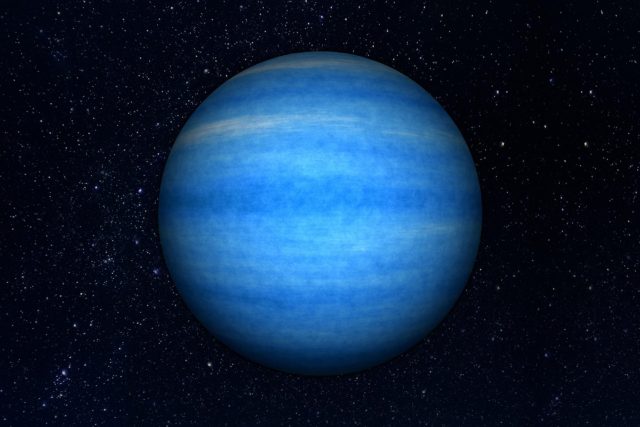
The planet Neptune is the eighth planet from the Sun. It is a mystical blue color and is seventeen times the size of the Earth.
Neptune is one of the three outer planets, along with Uranus and Pluto. These planets were discovered in modern times after the known 7 planets of classical astrology were long established.
All the outer planets are related with crossing boundaries in one way or another. Uranus defies boundaries; Pluto annihilates them; and Neptune, true to its watery nature, dissolves and transcends them.
In astrology the planet Neptune is associated with the oceanic qualities of its namesake. Neptune rules the zodiac sign of Pisces, the fish in the ocean. Both this planet and sign are attuned to the subtle nature of the hidden world within the imagination and dreams.
Neptune governs dreams, spiritual experiences, illusions, delusions, drug-induced states, alcoholism, and addiction in general. A Hippocratic text On the Sacred Disease says that the god Neptune was blamed for certain types of epilepsy and certain forms of mental disturbance.
The Astrological Symbol of Neptune
This symbol shows the crescent of the soul on the cross of matter, and stylized in a way as to depict the famous trident. This shows the importance of the soul, the inner psychological life, within the physical nature and limitations of existence.
Neptune and Pisces are oriented to transcending physicality in order to investigate the spiritual dimensions, and therefore aware of the limitations that life constantly imposes.
The Trident of Neptune
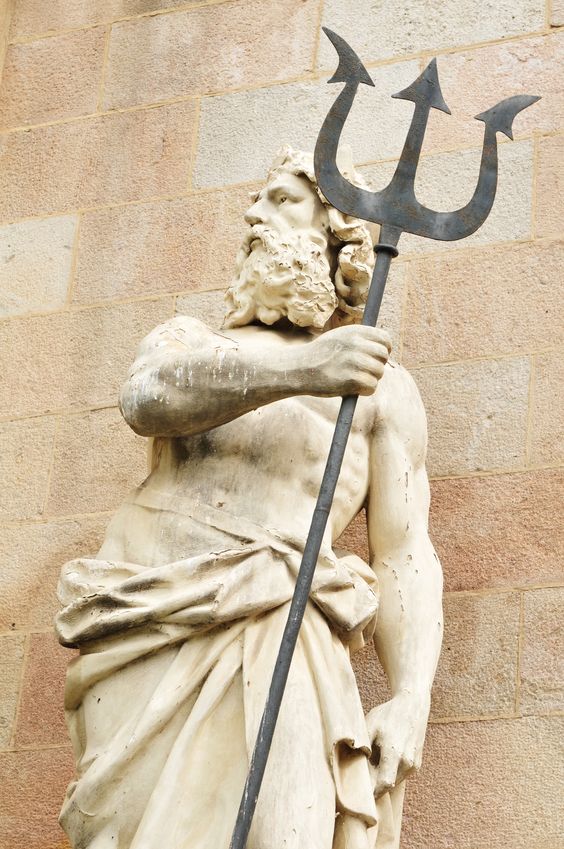
The god Neptune is usually seen with a trident, a spear of three points, which represent the three primary forces: affirming, negating, and reconciling.
The classic depictions of the devil carries a trident as well. A devil or demon uses the three primary forces to create, but negatively, thereby creating more materialism, hypnotism, suffering, and selfishness in the world.
Neptune the god of the ocean embodies the oceanic consciousness of the Being, as well as an individual’s internal sexual waters. Neptune’s trident is whitened as the result of the esoteric spiritual work purifying the demonic aspects.
The positive force of Neptune within us allows access to the mystical and profound depths of life, in a way that is balanced with wisdom.

